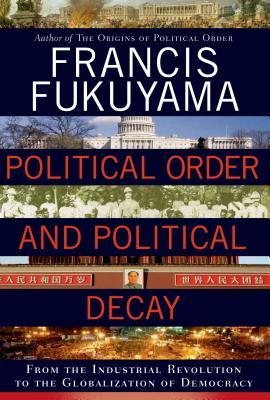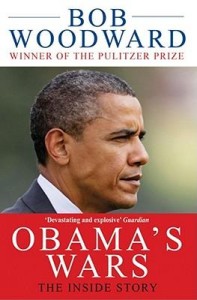Political Order and Political Decay: From the Industrial Revolution to the Globalization of Democracy, by Francis Fukuyama, is the story of how state, law and democracy developed after these cataclysmic events, how the modern landscape – with its uneasy tension between dictatorships and liberal democracies – evolved and how in the United States and in other developed democracies, unmistakable signs of decay have emerged. Best known for his book The End of History and the Last Man, Fukuyama argues that if we want to understand the political systems that dominate and order our lives, we must first address their origins – in our own recent past as well as in the earliest systems of human government. He believes the key to successful government can be reduced to three key elements: a strong state, the rule of law, and institutions of democratic accountability. Essential reading for anyone wishing to understand why Western democracies are so vulnerable to the Sharia.
Political Order and Political Decay is a magisterial account, required reading for anyone wishing to know more about mankind’s greatest achievements.
A piece in the Literary Review records: “One of the merits of this ambitious and wide-ranging book is that it recognises the daunting difficulties of creating an effective state – democracy’s most essential precondition. ‘Before a state can be constrained by either law or democracy’, Fukuyama writes, ‘it needs to exist. This means, in the first instance, the establishment of a centralized executive and a bureaucracy.’ Much of the book is a catalogue of the vicissitudes of state-building, and Fukuyama recounts in impressive detail the disparate results in countries such as Prussia, Italy and the United States. Part of the book is given over to examining semi-failed states, with an instructive chapter devoted to Nigeria. Here Fukuyama’s analysis is incisive: ‘Lack of democracy is not the core of the country’s problems.’ What Nigeria lacks is ‘a strong, modern, and capable state … The Nigerian state is weak not only in technical capacity and its ability to enforce laws impersonally and transparently. It is also weak in a moral sense: it has a deficit of legitimacy.’ ”
The Guardian observed that in 1992 when The End of History and the Last Man was first published, “many chose to interpret Fukuyama’s dense, aphorism-studded argument as an arrogant, misguided spelling out of the triumph of liberal capitalism. But Fukuyama had something subtler to say. He wanted us to think of what we should do with ourselves now democracy was installed globally. Would we be happy as humans – or would we not enter some zone of deep, anti-climactic dissatisfaction? And would liberal democracy be superseded?”
The Sydney Morning Herald‘s reviewer Mark Thomas wrote: “Executive capacity, summed up as determination, will and plans to execute policy is consistently praised in this volume. Fukuyama is intrigued not just by power as theatre but by more mundane bureaucracy as well. Max Weber is regularly commended as a point of reference (possibly too much so). In addition, Fukuyama devotes careful, thoughtful argument to appraising the calibre of various public services (especially the rise and fall of the US Forest Service, and the spread of law in Japan). Those concerned to divide, limit and hem in power are dealt with more briskly. Deliberation, one of the critical variables in how power works, is his focus throughout.
“All these arguments are clearly stated, cogently explained, confidently defended. Fukuyama only occasionally lapses into jargon; he could usefully dispense with “clientelistic” as an adjective or “repatrimonialization” as a noun, but plain English otherwise reigns. He is especially persuasive in appraising “low-trust equilibrium” (using Italy as an example) in outlining how political parties “create a stability of expectations”, and in insisting that “reform is a profoundly political process, not a technical one”. He is particularly instructive in justifying the claim that a strong national identity is “critical” to building a strong State, using early post-colonial experience in Tanzania and Indonesia as guides.”







